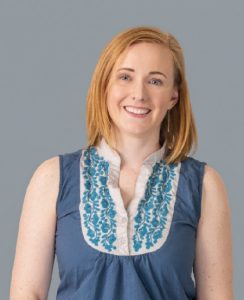
Teacher Spotlight: Rebekah Shore

Teacher Spotlight: Rebekah Shore
Rebekah Shore is a Math teacher and tutor at MEK, who teaches MLC Operations and Number Sense for Grades 5 and 6 and MLC Problem Solving Math for Grade 5. She also tutors for MLC Math and ISEE Prep.
The following is an interview between her and our content writer:
Teaching at MEK
Interviewer: What is your favorite part of teaching at MEK?
Shore: One of my favorite parts of teaching at MEK is the curriculum. It’s well structured and very thought out. And I think the pacing of the content is wonderful. As a teacher, I really like the consistency of using the same curriculum every year. Because of that consistency, my lessons get better each time I teach the curriculum since I am able to anticipate how well the students will understand the lesson based on my experience with the content.
Outside of curriculum, I love seeing and working with the same students year after year. This summer, I have some students who I taught last summer. It’s wonderful to watch them make progress in their studies.
Interviewer: What inspired you to become a teacher?
Shore: My teachers in elementary, middle, and high school inspired me to become a teacher. I had many phenomenal teachers who made class fun and who left lasting impressions on me. I really respected my math teachers for making math class enjoyable. They never stopped trying to find new ways to make math fun and easy, even when the content was tough. I was intrigued by the challenge of making math fun for students.
Interviewer: Do you teach outside of MEK?
Shore: I’ve been teaching middle and high school math at a private school in White Plains, New York for the last five years.
Student Engagement
Interviewer: What’s your key to student engagement in the classroom?
Shore: My main strategy to help engage students is to give each student personalized attention and praise. I make sure to acknowledge when students do something really well in front of the other students. I’ve found that this boosts their confidence in their math skills and is a strategy that I can employ in both the virtual and in-person classrooms.
Students are motivated when they see one of their peers being praised. They want that praise for themselves. So, it reinforces positive skills both in math and in the classroom. For example, if I praise a student for remembering what we learned in a prior class and applying it to our current lessons, the other students will be inspired to do what that student did.
Boosting Confidence in Math
Interviewer: You mentioned boosting confidence in math. Do you have advice for middle schoolers on becoming successful math students? How do you give students confidence in math?
Shore: It’s very important to meet the students where they are skill-wise. As a teacher in a group setting, knowing each students’ abilities requires you to pay close attention to and to analyze student scores. That way you are able to give students the extra time and attention they may need. At MEK, we have office hours outside of class where students can meet one-on-one with their teacher for individualized support.
Growth mindset is also essential for becoming confident in math. If you meet students at their current level, whether that’s above or below grade level, and give them experiences where they are successful at that level, then you can begin to build up their skills.
The pacing of the summer curriculum moves quickly. Sometimes it’s hard for students to keep up. But if you give them practice with math problems at their current level, they build confidence and persistence.
Advice for the ISEE
Interviewer: Persistence is also key for succeeding on tough admissions exams. Do you have any advice for students taking the ISEE?
Shore: Every student, but especially younger students, need to be cognizant and reflective of their progress. Students should be looking at their scores and tracking their progress with each practice test they take. They need to track patterns within their scoring and recognize what’s creating those patterns. Then, they need to ask themselves whether or not they are improving and what’s causing their scores to go up or down. They can create a plan that addresses the answers to those questions.
For example, if a student is exhausted by the time they get to section four of the ISEE, and that is what’s causing their score to be low, they need to think of ways to prevent that test fatigue from occurring. Do they need to take more little mental breaks throughout the first sections of the test? Students need to track and be reflective about their progress, especially younger students.
College Advice
Interviewer: Where did you go to college?
Shore: I went to a small college on a full scholarship in South Carolina called North Greenville University where I majored in Secondary Mathematics Education. Then, I went to Purdue where I graduated with a Masters in Curriculum and Instruction with a focus in Math.
Interviewer: How did you like going to a small college?
Shore: I loved it! I went to a really big high school. And while I never felt overwhelmed by attending a large high school, I was overwhelmed by the idea of attending a large university. I enjoy being social, so the smaller campus was nice because I was able to get to know my peers on campus better than at a large university. I even tutored math on campus for students taking freshman math.
Interviewer: The size of a school is definitely an important factor in choosing the right college. Do you have any other advice for students applying to college?
Shore: Students applying to college should definitely research schools for the specific program they want to go into. If you know what you want to major in or if you know what program you want to apply to, make sure the school has accreditation in that program or major.
For example, I had to make sure that the education program at my college was accredited within the state and also nationally. So, make sure the license or certification you will graduate with is from a nationally accredited program.
Free Time
Interviewer: What do you like to do outside of MEK?
Shore: I love doing volunteer work. I’m currently part of an international non-profit where I work with a team on educational initiatives. The non-profit also works on environmental and health initiatives.
Interviewer: What’s one of the initiatives you’re working on now?
Shore: Currently we are working on an educational initiative to donate book bags and school supplies to students in schools who qualify for free and reduced lunch. This is especially useful for students with a financial need or who have multiple siblings. Our aim is to relieve financial burdens for families and students in need.



